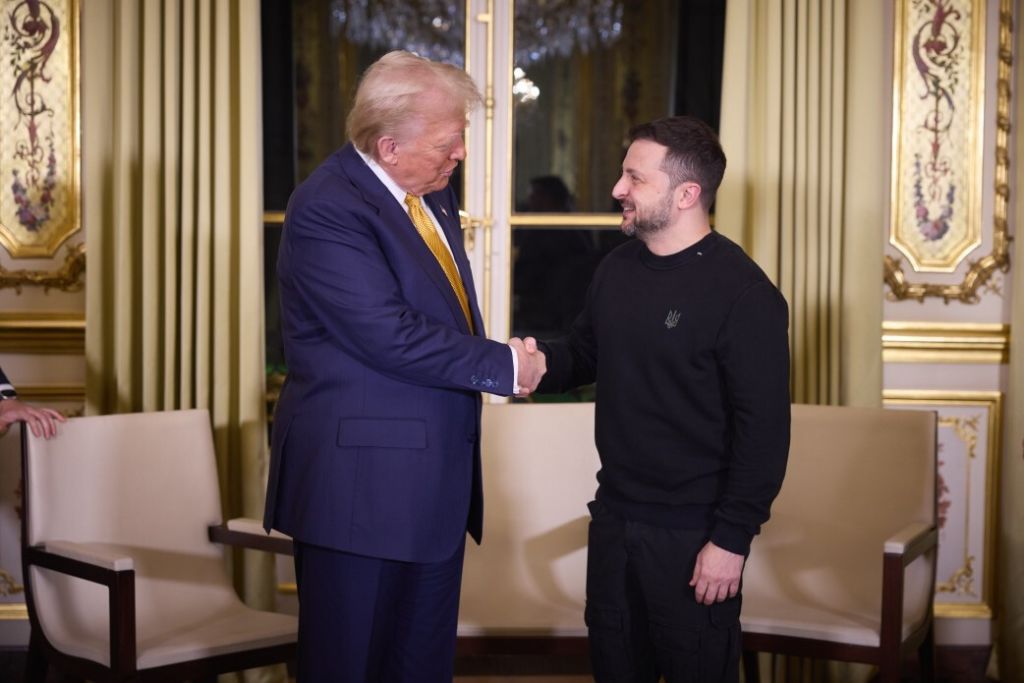Throughout history it has usually been the case that at the conclusion of a war, punitive reparations are imposed by the victors upon the vanquished, especially if the vanquished started the war.
But Ukraine may be an outlier in being strong-armed into paying punitive reparations for being the victim of an aggressive invasion. That is what has been proposed in the draft contract Donald Trump tried to make Volodymyr Zelensky sign earlier this month. That, in the words of the Telegraph, would “amount to the US economic colonization of Ukraine, in legal perpetuity”. The contract would essentially grant America substantial control over Ukraine’s critical resources, including minerals, oil, gas, ports, and other infrastructure and a 50% cut of all revenues Ukraine receives on extracted resources, which overall would “amount to a higher share of Ukrainian GDP than reparations imposed on Germany at the Versailles Treaty”.
If any version of these proposals came into existence, it would shatter the dream of Western integration held by many Ukrainians, one that tens of thousands have fought, died and been maimed for: what Václav Havel once called a “return to Europe”. Instead, it is more likely that Ukraine will be forced to exchange neocolonial subordination under Russia to the same state of affairs under the US.
Zelensky repeatedly insists that he will “never” accept any negotiated peace between Russia and the US so long as Kyiv is shut out of the negotiations. But it is a brutal fact that Ukraine is in a weak position. With the American superpower steadily disengaging itself from Ukraine and a divided European Union failing to come up with an effective alternative strategy, Ukraine will have little leverage in negotiations with Russia. For all of his patriotic bluster, there is likely a scenario where Zelensky will have little choice other than to go along with whatever Trump and Putin agree, with the alternative being to keep on fighting a grueling war of attrition without any powerful ally backing it.
Although comparisons have been made with the Treaty of Versailles, Ukraine’s current situation is very different to Germany’s in the Twenties. But one thing the two may have in common is that these sorts of arrangements have the potential to inflame nationalism of the worst kind. Ukrainian deputy Oleksandr Merezhko, the chair of the parliament’s foreign affairs committee, has already warned about the danger of far-Right organizations to the country’s democracy. Though their existence has been easy to exploit for Russian propaganda, it shouldn’t be underestimated. If negotiations begin with Ukraine, the far-Right may try to portray Zelensky as a traitor and coward who sold Ukraine and its sovereignty down the river.
Trump’s logic is simple. America has forked out over $175 billion in aid to Ukraine and there has been no return on that investment. He wants it back, and more, by any means necessary. In the original document which Trump wanted Zelensky to sign, it states that America and Ukraine desire a lasting “piece” in Ukraine. Although this is a typo, it unwittingly reveals what the Trump administration really wants. The US President’s plan for Ukraine is akin to a mafia-style protection racket, but the protection is looking increasingly limited.











Join the discussion
Join like minded readers that support our journalism by becoming a paid subscriber
To join the discussion in the comments, become a paid subscriber.
Join like minded readers that support our journalism, read unlimited articles and enjoy other subscriber-only benefits.
Subscribe